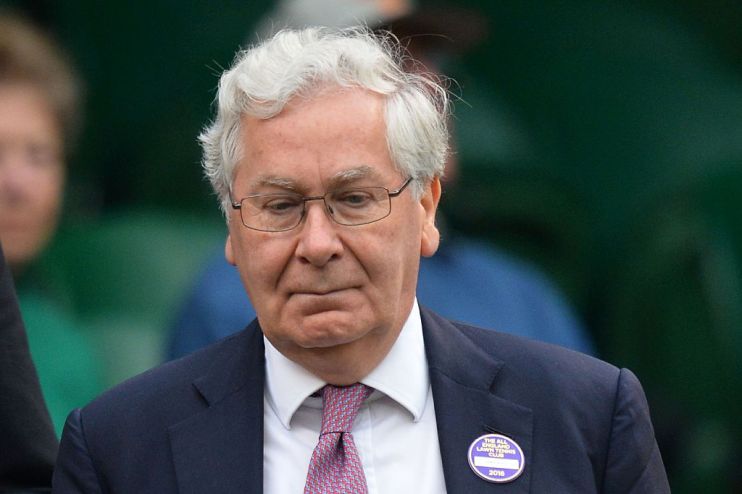Former BoE governor Sir Mervyn King warns that increasing QE would be ‘premature’

The former Governor of the Bank of England has warned that it would be premature for the UK’s central bank to expand the quantitative easing scheme too early, saying such a step would be premature.
Speaking to the Coronanomics podcast, King, who held the top job at the Old Lady of Threadneedle Street during the 2007 financial crisis, said that the current management should wait until the economy has recovered to levels similar to that of the end of 2019 before returning to conventional monetary and fiscal measures.
King’s comments came ahead of this week’s meeting of the Monetary Policy Committee (MPC), which sets the UK’s interest rates.
At the moment, the base rate of interest sits at 0.1 per cent, the lowest level in history. The Bank slashed rates in March in response to the coronavirus pandemic.
In addition, in June the Bank announced a further £100bn of stimulus to take its bond-buying target from £645bn to £745bn for 2020.
King said: “The argument for any quantitative easing is do we need to expand the money supply in order to boost economic recovery?
“I don’t think that’s an issue that’s been relevant for the last few months because the government’s been trying to shut down the economy. It doesn’t want it to expand.
Before the Open newsletter: Start your day with the City View podcast and key market data
“Now we’re beginning to recover, we’re slowly moving into a period in which maybe the question of monetary and fiscal stimulus is relevant. But at this stage, I still think it’s premature to argue that a big monetary stimulus is appropriate because we still have significant aspects of a shutdown.”
He went on: “So I think we have to wait until we get to a point where it looks as if the economy’s recovered to within a few percentage points of the level which it had reached at the very end of last year before really feeling that we can end the temporary support schemes and think in terms of conventional monetary and fiscal stimulus.
“I still think that is some way off”, he said.
He also backed Boris Johnson’s comments that the pandemic had put the economic challenge of leaving the European Union into perspective.
“Covid-19 is a global problem and it’s led to a global downturn”, he said. “So I think we should be thinking of this as a much, much bigger thing than Brexit.”
“Brexit will have some long run impact on the pattern of trade. There’ll be some trade creation, some trade diversion.
“I don’t think that given the scale of restrictions or tariffs that are likely to be imposed, this is a major issue for the UK and we can certainly cope with that without any difficulty.”